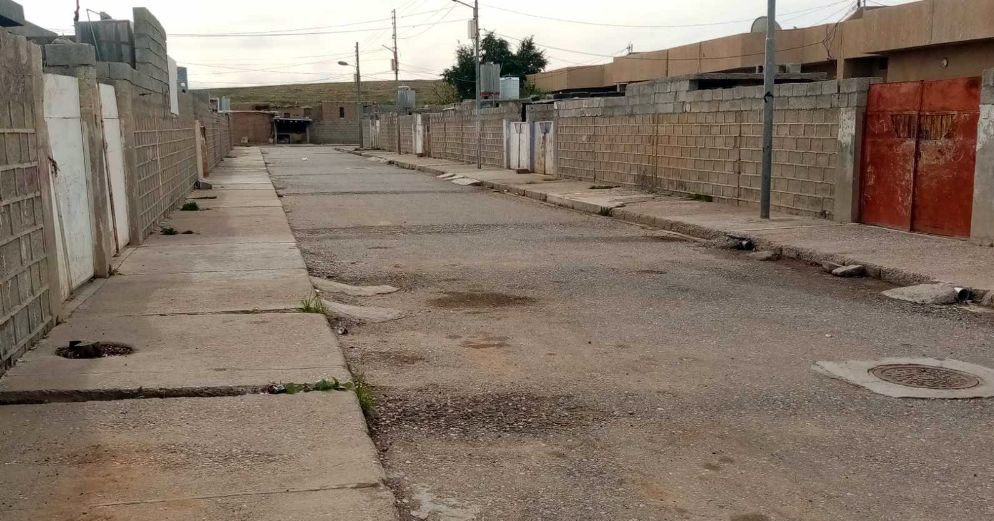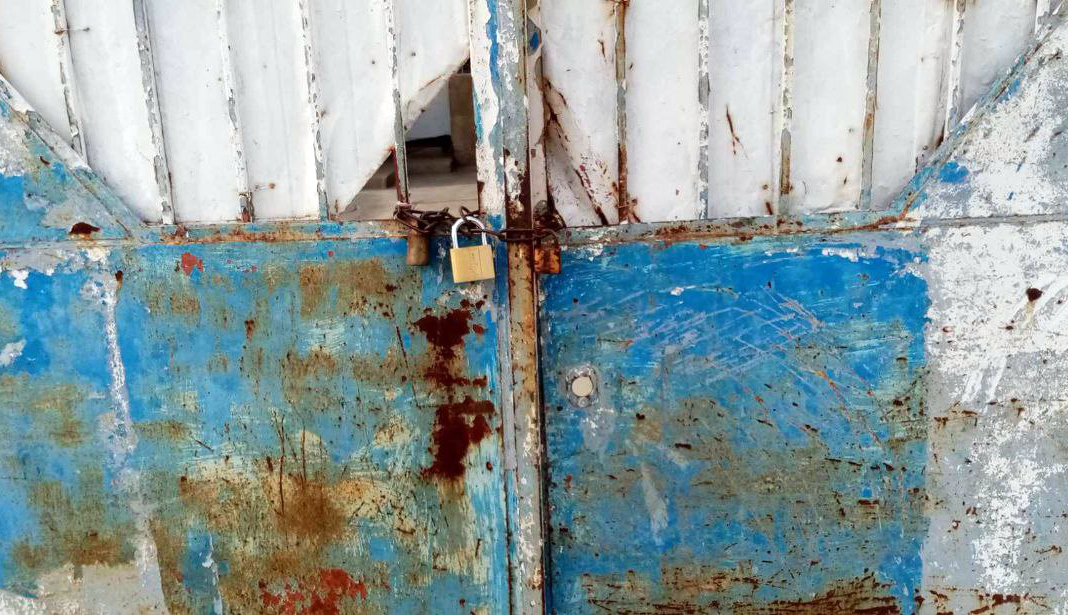After being surrounded by five of their children, Jamal Karim and his wife remained alone in the Nawjul sub-district due to the absence of services and the effects of climate change, which prompted Jamal’s sons and daughters to leave the homes of their fathers and grandparents.
Nawjul sub-district is located between Kifri and Tuz Khurmatu districts, and its residents’ livelihood depends on agriculture and livestock raising, two sectors that face great danger due to water scarcity and other problems.
“We have been working here in agriculture since forever, but drought, lack of rain, and the absence of services such as electricity have led to residents losing their work. As a result, it is impossible to be able to continue living here,” said Jamal Karim Agha (75 years old) about the area where his family and relatives have lived for hundreds of years.
It is impossible to be able to continue living here
According to United Nations statistics and warnings, Iraq is ranked fifth among the countries most affected by the repercussions of climate change, which include the risks of water scarcity, drought, high temperatures, pollution, and other natural disasters.
“Most of my family, relatives, and residents of the area have left. Five of my sons and daughters left with their families last year for Sulaymaniyah and other areas. I stayed alone with my wife,” Karim told KirkukNow.
The district is equipped daily with only a few hours of electricity, “We spend the night with lantern light, national electricity is scarce, and we do not have private generators.”
About 131,000 Iraqi citizens in 12 Iraqi governorates left their areas from 2016 until mid-September 2023, due to the effects of climate change, given that the livelihood of many of them depended on agriculture and livestock raising, according to statistics from the International Organization for Migration (IOM).
Life has become very difficult, it is difficult for us to continue living here,” according to Jamal Karim.
Nawjul suffers from being affiliated with two different administrations. One part is administratively affiliated with Kifri District, part of Sulaymaiyah province run by the Kurdistan Regional Government KRG and the other part is affiliated with Tuz Khurmato District in Salah al-Din Governorate, administered by the federal government. The two districts are disputed territories.
Kifri is affiliated with Diyala Governorate, but administratively it belongs to the independent Garmian Administration within the borders of Sulaymaniyah Governorate.

Wahab Ahmed, the mayor of the Nawjul district, told KirkukNow, “During the past years, more than 100 families lived in the center of the district, but due to the exacerbation of some problems, such as the electricity crisis and poor roads and streets, most of the district’s residents left and the number decreased to 68 families, and currently only 18 families live in the center of the district.”
Ahmad says that the district is “marginalized” between two administrations, as it is affiliated with both the KRG and the Iraqi Federal Government. Transactions and administrative affairs are for half of the district’s population in Tuz Khurmatu and the other half in Kifri. This division includes all service sectors, education, electricity, and even voting.
Currently, only 18 families live in the center of the district
“The residents of the region were busy with agriculture and livestock raising, which is not possible now... The villages located on the outskirts of the district are completely neglected, especially the electricity sector, which is very deteriorating,” explained the mayor.
The Nawjul district includes 46 villages, four of which were completely evacuated of residents years ago due to the threats of the Islamic State in Iraq and the Levant - ISIL. The other villages, some of which are subject to the authority of the pro-Iran paramilitary of the Popular Mobilization Forces PMF and the other part to the authority of the forces affiliated with the KRG, have left their homes.
Masoud Ahmed, a farmer from the Zinana area of Nawjul district, who left his area and settled in the Rizgari sub-district of Kalar district, told KirkukNow: “I left with my family members because of the many difficulties and problems. Life there was difficult in terms of work and securing a living.”
“Once problems treated, I'll be right back."
Some of the problems that Ahmed spoke about, in addition to the effects of climate change, include public utilities such as electricity, poor roads and streets, health services and security risks.
Nawjul has large areas of fertile agricultural land, but the threats of the militant groups and water scarcity have deprived farmers of most of it.
The director of the Nawjul district says that the controls and instructions issued by the government to farmers are cumbersome and full of red tape, so it is difficult for the farmer to spend six months to complete a special procedure for digging a water well for agricultural land of 50 dunams, so he is forced, due to the scarcity of water, to abandon agriculture and leave the region.
“I do not think that the regional government can address the existing problems,” he said, noting that the district directorate does not have a single employee, and that some other departments, such as the Agriculture Department and the Water Department, were transferred to other regions.
“The district is about to be completely devoid of its residents... The area is on the line of contact between the region and Iraq, and if it becomes empty, a security vacuum will be created that poses a threat to the surrounding districts, such as Sarqala, Qadir Karam, Awa Spi and other areas,” Wahab Ahmed says.





